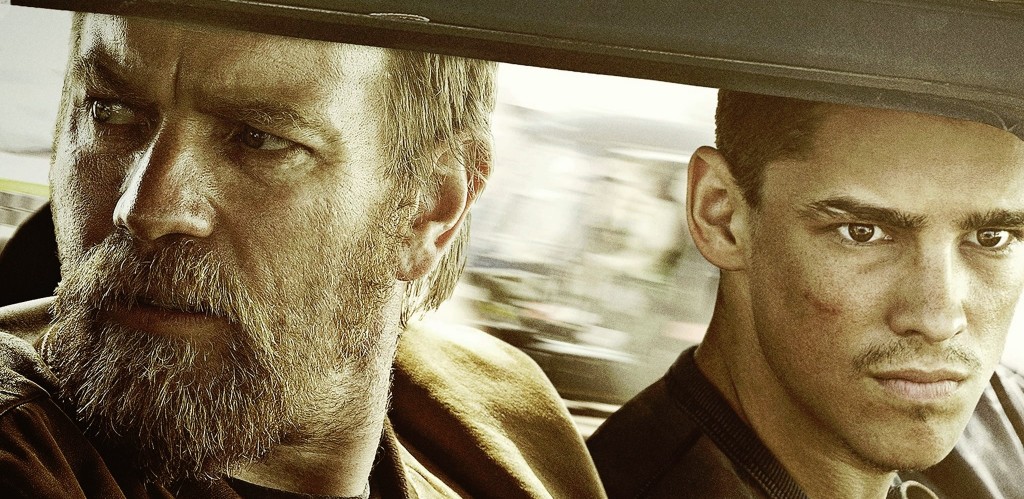A good crime film, like a good crime, doesn’t make concessions for its audience. It’s an inherently tragic genre, from Spies through to GoodFellas. But in the wake of Scorsese’s charismatic sociopaths came movie gangsters who are downright cuddly: Guy Ritchie’s wise-cracking stick-up men, Luc Besson’s admirably professional thieves, and Mark Wahlberg’s gallery of handsome rogues, just to name-drop a few notable offenders. From these limp ranks emerges Son of a Gun, Julius Avery’s directorial debut, an Australian crime thriller working the top dog vs. new recruit angle. (See also, among many noir and crime films: the conspicuously similar Australian festival hit Animal Kingdom.) Ewan McGregor plays against type by lending a mean streak to the film’s hardened convict, playing against Brenton Thwaites’ greenhorn rookie. But the film can only let him posture and snarl, until its lukewarm heart inevitably redeems him.
What’s interesting about these cuddly crime films is that they’re ostensibly pro-criminal. And, befitting that, if there’s an antagonist in Son of a Gun, it’s neither McGregor’s domineering mentor nor the mobster who rips him off during the film’s third act. Instead, it’s the criminal justice system and the prisons working alongside it: Avery’s structure presents prison as little more than a vessel by which newbies like Thwaites’ JR can dive deeper into the underworld. The film opens with him arriving at lock-up, where – being young, good-looking, and small – he’s almost immediately selected as a target by gang rapists. He’s saved at the literal last moment by McGregor’s Brendan, who does so knowing how easy a young man in need of protection can be to manipulate. A couple scenes later, laughably and implausibly, JR is hijacking a helicopter and busting his buddies out, with more heists to look forward to. The petty criminal as victim to the system – a 6-month sentence becomes a lifetime debt.
As Francois Truffaut once wrote, in regards to Lang’s You Only Live Once: “If, against his will, [a criminal] ‘goes back to his old game,’ ‘falls’ again, it isn’t because ‘once a thief, always a thief,’ but because society dictates once a thief, always a thief.” Brendan’s prison-yard protection entitles him to treat JR as a trusted protege at one moment, and as an indentured servant the next. Son, in narrative and imagery, lingers on signifiers of JR’s Helpless Rookie status. He can’t swim, he can’t defend himself, he can’t even use chopsticks. Many characters play chess – in a film about pawns of the prison system making pawns out of one another.
Enough subtext. The text takes a far more romantic tint. JR spends the second act falling for Tasha, the unfairly kept woman of a local crime boss. Her status – unofficially imprisoned within a life of crime – mirrors his own, allowing Avery to indulge many cliches of the Doomed Lovers genre. (They frolic on the beach together, flashes of moonlight cutting across their gaze, solid imitation Mann.) Shadowy rooms with romantic tints play their host, as Avery defers to the My First Movie Moody Lighting Starter Pack throughout. His dialogue is no more polished, occasionally growing so ludicrous that it could pass for a parody of daytime television. JR tells Tasha about the time he almost drowned. “What was that like?” she asks. “Once you stop thinking about it,” he whispers profoundly, “It’s actually kind of peaceful.” Then they make out furiously.
Tying the film’s loose strands together in the hackiest manner possible, Avery’s script implausibly conspires to bring Brendan and JR into a large amount of money, leaving the two to settle their differences, Once and For All, in the parceling out of the funds. This, also, is resolved in the hackiest manner possible, one that’s sure to leave all audience members feeling quite comfortable and ingratiated. Then this monstrosity climaxes with a befuddling, saccharine final shot, which goes so far as to invoke redemptive religious iconography. Another in a long line of films that make a myth of a male character who never earned it. Another crime film that’s learned all it knows about criminal life from better crime films. Another softie.




















